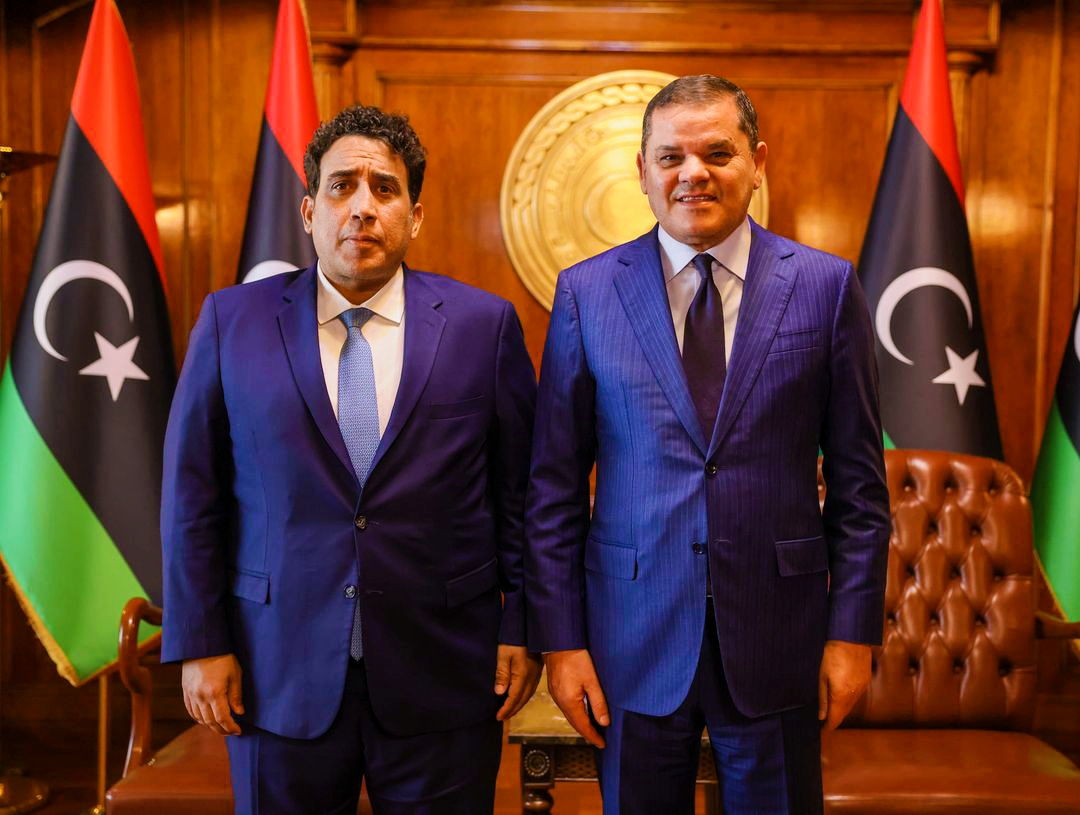A New Conflict Between Dbeibah and Al-Menfi Threatens the Security Agreement in Tripoli
September 15, 2025120 ViewsRead Time: 3 minutes

Font Size:
16
In a new escalation of the disputes between the heads of the executive authority in Libya, a sharp conflict erupted between the Prime Minister of the National Unity Government Abdul Hamid Dbeibah and the President of the Presidential Council Mohamed Al-Menfi over the appointment of a new head of the Judicial Police, the body responsible for overseeing prisons and executing judicial rulings, in a move that threatens to undermine the recently concluded security agreement with the deterrent force to combat crime and terrorism.
* Conflicting Appointments .. and Lack of Coordination
According to the security agreement signed by Dbeibah's government with the deterrent force, a consensus figure was supposed to be chosen to lead the agency following Major General Osama Najim, who is wanted by the International Criminal Court.
However, instead of consensus, each party made a unilateral and opposing decision:
Dbeibah appointed Major General Abdul Fattah Dabboub to lead the Judicial Police.
While Al-Menfi announced the appointment of Major General Atiya Al-Fakhri as the head of the same agency.
This contradiction in decisions reveals the ongoing struggle for sensitive security positions within the state and highlights the deep divide between the parties in the executive authority in the country, despite ongoing efforts to defuse tensions in the capital, Tripoli.
* Concerns About the Future of the Security Agreement
The security agreement, described as a "historic step" to restore stability to Tripoli, now seems threatened in light of this renewed division.
Experts warn that the continuation of this dispute could hinder the implementation of the agreement on the ground and return the capital to a state of security tension.
The Libyan analyst Mohamed Al-Raeesh considered that the agreement "helped calm the situation in Tripoli and remove armed manifestations," but he clearly pointed out that the practical application revealed a lack of commitment and real consensus between Dbeibah and Al-Menfi.
Al-Raeesh added:
"There is a clear division between the poles of the executive authority, and each party seeks to control the official agencies to enhance its influence within state institutions, serving its interests and the interests of the parties that support it."
* A Sensitive Agency in the Crosshairs of Political Competition
The Judicial Police is considered one of the most sensitive security agencies in Libya, due to its role in:
• Managing prisons.
• Executing judicial orders.
• Following up on the cases of convicts and detainees.
This vital role has made it a direct point of competition among political and military rivals, especially with the escalating struggle for influence within the state's security and military agencies.
* A Dangerous Message .. Who Holds the Upper Hand?
The conflicting decisions issued by Dbeibah and Al-Menfi send a troubling signal regarding the centrality of security decision-making in Libya and raise fundamental questions about:
Who actually controls the security agencies?
And will the understandings withstand this fierce struggle for influence?
At a time when local and international efforts are being made to resolve the Libyan crisis, it seems that the struggle for positions remains the biggest obstacle to rebuilding state institutions on unified and legal foundations.